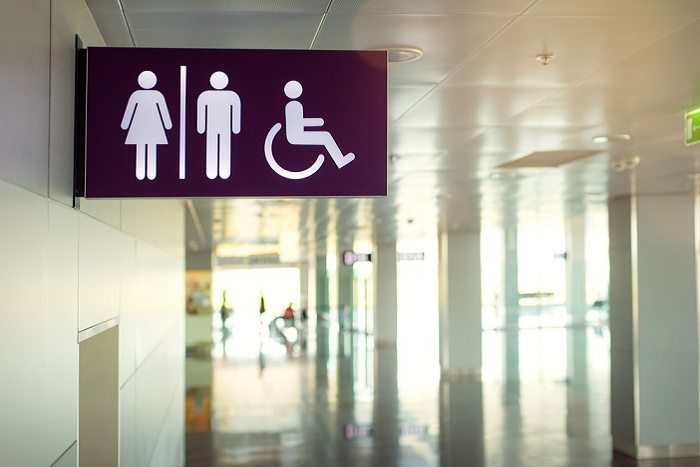Historic Ruling Issued on Transgender Employee Rights
Banning transgender employees from using restrooms consistent with their gender identities violates federal civil rights laws, an agency ruled.

It is a civil rights violation to deny transgender workers the use of a restroom consistent with their gender identities, according to a ruling from the federal agency in charge of administering workplace anti-discrimination laws.
The Equal Employment Opportunity Commission (EEOC) issued the landmark ruling April 1 in the case of Tamara Lusardi. As detailed in the EEOC decision, Lusardi worked as a software quality assurance specialist in the U.S. Army Aviation and Missile Research, Development and Engineering Center (AMRDEC), in Hunstville, Alabama.
Supervisors at AMRDEC prohibited her from using the women’s restroom after she transitioned, relegating her instead to a single-staff restroom segregated from other employees, according to Lusardi’s complaint. Lusardi also said one of her supervisors repeatedly and intentionally harassed her by using her former name and male pronouns.
The EEOC ruled that AMRDEC’s decision to restrict Lusardi to a separate bathroom “isolated and segregated her from other persons of her gender” and “perpetuated the sense that she was not worthy of equal treatment and respect.”
“Nothing in Title VII makes any medical procedure a prerequisite for equal opportunity (for transgender individuals, or anyone else),” the opinion states. “An agency may not condition access to facilities—or to other terms, conditions, or privileges of employment—on the completion of certain medical steps that the agency itself has unilaterally determined will somehow prove the bona fides of the individual’s gender identity.”
The EEOC also found that the supervisor’s intentional use of male pronouns “compounded that discrimination and sent the message that Ms. Lusardi was unworthy of basic respect and dignity because she is a transgender individual.”
The EEOC held that “[w]hile inadvertent and isolated slips of the tongue” would be a different story, it was clear in this case that the use of a male name and pronouns to refer to Lusardi “was not accidental, but instead was intended to humiliate and ridicule” her, finding that this conduct was “offensive and demeaning.”
Taken together with the exclusion from the restroom, the EEOC held that AMRDEC had subjected her to a hostile work environment because of her transgender status.
AMRDEC had defended its conduct by arguing that other employees might be uncomfortable or upset by Lusardi using the restroom consistent with her gender identity. The EEOC flatly rejected this, arguing that “[a]llowing the preferences of co-workers to determine whether sex discrimination is valid reinforces the very stereotypes and prejudices that Title VII is intended to overcome.”
“From the start this has been about getting a fair shake to work hard at a job I love,” Tamara Lusardi said in a statement following the decision. “As a disabled veteran, I take great pride in my work making sure our soldiers are safe, and I want to be able to focus on doing a good job without worrying about harassment in the workplace or getting in trouble when I need to use a bathroom.”
Both federal courts and agencies have begun to interpret Title VII, the federal law that prohibits sex discrimination in employment, to protect transgender employees. The EEOC in 2012 issued the landmark decision Macy v. Holder, which held that discrimination based on transgender status was a form of unlawful sex discrimination under Title VII.
Then in December 2014 the Department of Justice issued a memorandum recognizing transgender people as protected under Title VII.
“With this groundbreaking decision, the federal government has made it clear that it’s not acceptable to single out transgender employees for harassment—including by forcing them to use a different bathroom than everyone else,” Kris Hayashi, executive director of the Transgender Law Center, which represented Lusardi, said in a statement. “This case confirms that under our laws, all of us, including transgender people, get to have a fair chance to earn a living and be ourselves at work.”
The EEOC ordered AMRDEC to provide Lusardi with compensatory damages and attorneys’ fees and to conduct diversity training for all employees and supervisors in the facility where she works.
The agency’s ruling recognizing transgender workplace harassment is binding on other federal agencies, but not on federal or state courts. The ruling is also binding on all EEOC field offices that investigate and prosecute claims of employment discrimination from the private sector.
